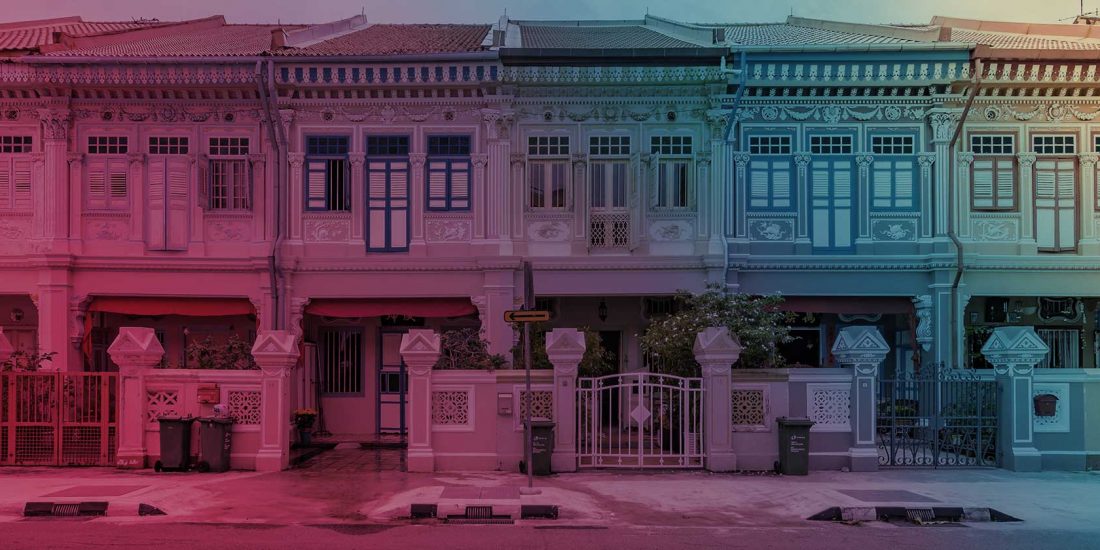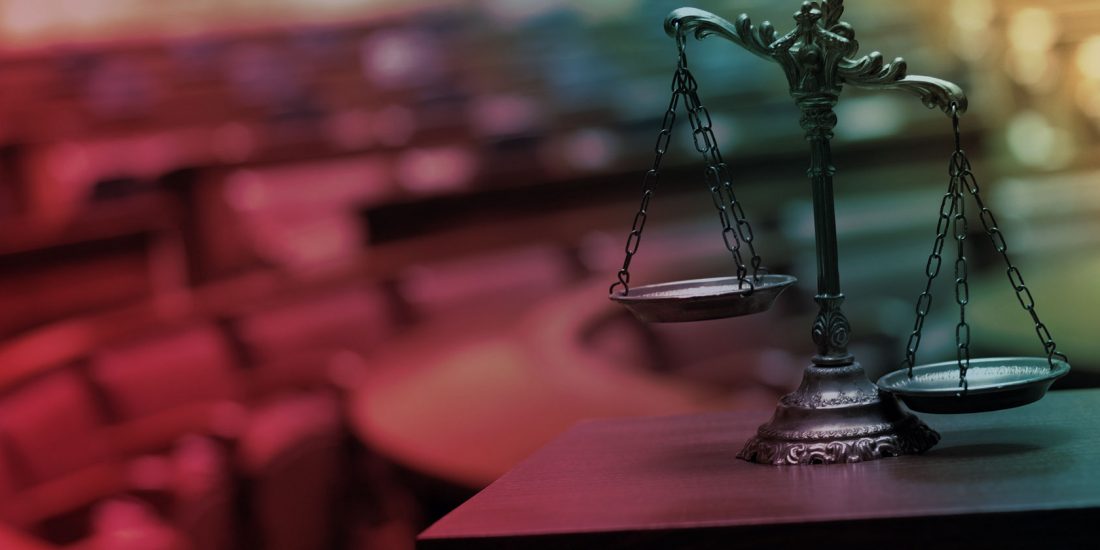
Strengthening the Institution of Marriage as the Union of One Man and One Woman
This article examines the recent repeal of section 377A of the Penal Code and the concurrent constitutional amendment to strengthen the institution of marriage as the union of one man and one woman. Specifically, it explains the jurisprudential significance of the new constitutional provision, Article 156, which has a bearing on our understanding of the laws and policies to be enacted and implemented in future.
While the United States Congress recently passed the Respect for Marriage Act1https://www.congress.gov/bill/117th-congress/house-bill/8404/text (accessed 23 January 2023). which aims to ensure that all states and the federal government recognise same-sex marriages that are validly entered into in any state, Singapore’s parliament (Parliament) moved in a contrary direction. To protect the traditional family unit, Parliament affirmed that marriage is a union between one man and one woman (heterosexual monogamous marriage).
In November last year, Parliament debated the proposed constitutional amendment to strengthen heterosexual monogamous marriage. An overwhelming majority of the members of parliament (MPs) endorsed the constitutional amendment alongside the repeal of section 377A of Singapore’s Penal Code2Penal Code 1871, 2020 Revised Edition. (section 377A). The People’s Action Party did not lift the party whip but required its MPs to vote in favour of both the repeal of section 377A3Penal Code (Amendment) Act 2022 (No. 39 of 2022). as well as the Constitution of the Republic of Singapore (Amendment No. 3) Act 2022.4https://www.straitstimes.com/singapore/politics/pap-will-not-lift-whip-for-parliament-debate-on-section-377a-repeal-lawrence-wong (accessed on 23 January 2023). The amendments came into effect on 3 January 2023.
Repealing Section 377A
Prior to its repeal, section 377A made it an offence for male persons to commit “acts of gross indecency” with other male persons. The criminal proscription applied to public and private acts.
While Singapore inherited the law as a former British colony, Parliament chose to retain it during an extensive criminal law review in 2007, even as Prime Minister Lee Hsien Loong (PM Lee) said that section 377A would not be “proactively” enforced.5https://sprs.parl.gov.sg/search/#/topic?reportid=018_20071023_S0003_T0002 (accessed 23 January 2023). PM Lee observed then that section 377A had become a symbolic issue for opposing camps. Numerous members of the public made extensive representations to their elected representatives asking for its repeal or its retention. He noted that keeping the status quo in light of the lack of consensus was preferred then, despite the legal untidiness and ambiguity that resulted from the government’s assurance that section 377A would not be proactively enforced. Given how views were polarised, he cautioned that the more gay activists pushed for change, the stronger the pushback would be.
Since 2007, activist groups have repeatedly campaigned for change. For example, Pink Dot Sg, a non-profit movement, organised a yearly event at Hong Lim Park. Litigants have also challenged the constitutionality of the law in the Singapore courts.6Lim Meng Suang v. Attorney-General (2014) SGCA 53; Tan Seng Kee v. Attorney-General (2022) SGCA 16. Amongst other arguments raised in the courts, it was said that section 377A violated Articles 9 and 12 of the Constitution of the Republic of Singapore (the Singapore Constitution).7https://sso.agc.gov.sg/Act/CONS1963 (accessed 23 January 2023). Article 9 states that any deprivation of life and liberty has to be in accordance with law, while Article 12 secures equal protection of the law. The Court of Appeal as well as the lower courts8Lim Meng Suang v. Attorney-General ((2013) 3 SLR 118; Ong Ming Johnson v. Attorney-General (2020) SGHC 63. upheld section 377A in these cases.
In 2018, the Attorney-General made a public statement that private homosexual acts between consenting male persons would not be prosecuted, in exercise of prosecutorial discretion, as it was not in the public interest to prosecute such acts.9https://www.agc.gov.sg/docs/default-source/newsroom-doucments/media-releases/2018/agc-media-release—public-prosecutor-retains-prosecutorial-discretion-for-section-377a_final.pdf (accessed 23 January 2023). However, critics suggested that the continued existence of such a law means gays are treated as criminals.10See, for example, https://www.mha.gov.sg/mediaroom/parliamentary/second-reading-of-penal-code-amendment-bill/ (accessed 23 January 2023).
The “significant legal risk” of the courts finding that section 377A was unconstitutional was emphasized by Minister for Law Mr K Shanmugam.11Ibid. In the latest case, Tan Seng Kee v. Attorney-General, the Court of Appeal had dismissed the application on the procedural ground that the applicants lacked the locus standi to challenge section 377A. Although it did not have to do so, the Court of Appeal considered the substantive constitutional challenges based on Articles 9, 12, and 14, suggesting that there was no violation of Articles 9 and 14 but being less definite about constitutionality according to Article 12. Minister Shanmugam explained that the Court of Appeal noted that section 377A might fail the reasonable classification test used in relation to Article 12 if it was understood according to the Syed Suhail approach.12This refers to the application of the reasonable classification test in Syed Suhail bin Syed Zin v Attorney-General (2021) 1 SLR 809. He also noted that the Court had, since Tan Seng Kee v. Attorney-General, applied the Syed Suhail test and approach in two other cases.13https://www.mha.gov.sg/mediaroom/parliamentary/second-reading-of-penal-code-amendment-bill/ (accessed 23 January 2023). There was therefore a risk that section 377A would be found to be unconstitutional in relation to Article 12.
Importance of Legislature’s Rationale for Repeal
While there is no need in this article to consider the different approaches to Article 12, it should be emphasized that there is a distinction between the government repealing section 377A (i) because it is unconstitutional, and (ii) because there is a risk of it being struck down by the courts for unconstitutionality. This distinction should not be elided in future discussions of the repeal of section 377A because it is significant in elucidating the underlying principles that justify the laws and policies based on the definition of marriage. How so?
- If the government were of the view that section 377A violated Article 12, it would have been because the government believed that heterosexual and homosexual sexual acts were on par in a pertinent moral sense, such that the criminal regulation of homosexual, but not heterosexual, acts constituted unconstitutional discrimination. This view can have knock-on effects in principle on the distinction that is drawn between heterosexual and homosexual relations in many laws and policies as well, as the distinction can be similarly discriminatory.
- Minister Shanmugam’s approach, however, suggests the repeal stems from the government’s view of the risk of section 377A being struck down by the courts for unconstitutionality. The government repeals section 377A to avert the situation of section 377A being struck down in the courts, which “could lead to a whole series of consequences which would be very damaging to our Singaporean society”.14Para 220, https://www.mha.gov.sg/mediaroom/parliamentary/second-reading-of-penal-code-amendment-bill/ (accessed 23 January 2023). A court’s decision on such a matter would be “binary, zero sum”,15Para 262, https://www.mha.gov.sg/mediaroom/parliamentary/second-reading-of-penal-code-amendment-bill/ (accessed 23 January 2023). made “without being able to consider the consequential effects of that decision on the definition of marriage”.16Para 264, https://www.mha.gov.sg/mediaroom/parliamentary/second-reading-of-penal-code-amendment-bill/ (accessed 23 January 2023). In contrast, Parliament could amend the Singapore Constitution to protect heterosexual monogamous marriage. The legislative branch of government is therefore acting because of the risk of the judicial branch of government taking a different view on the constitutionality of section 377A. The legislative branch does not take the view that homosexual and heterosexual acts and relations must be treated on par with each other, or that not doing so constitutes unconstitutional discrimination. But it foresees that there is a risk the judicial branch may differ in opinion. The constitutional moves to protect heterosexual monogamous marriages and the supporting laws and policies are thus not incoherent in principle because they stem from the legislative branch’s belief that differentiation of the two types of relations does not constitute discrimination under Article 12.
Definition of Marriage
Marriage in Singapore is regulated by the Women’s Charter, a statute enacted in 1961 to provide for monogamous marriages, their solemnisation and registration, regulation of rights and duties of married persons, and so on.17https://sso.agc.gov.sg/act/wc1961 (accessed 23 January 2023). “Monogamous marriage” is in turn defined in section 2(1) of the Interpretation Act as a marriage which is recognised, by the law of the place where it is contracted, as the voluntary union between one man and one woman to the exclusion of all others during the continuance of the marriage.18https://sso.agc.gov.sg/Act/IA1965#pr2- (accessed 23 January 2023). Specifically, according to section 12(1) of the Women’s Charter, marriages between persons who at the date of the marriage are not respectively male and female are void.
In the lead up to the announcement at the last National Day Rally speech by Prime Minister Lee19https://www.pmo.gov.sg/Newsroom/National-Day-Rally-2022-English (accessed 23 January 2023). of the proposed repeal of section 377A and the concurrent proposed constitutional amendment to strengthen the institution of heterosexual monogamous marriage, the idea of constitutionally entrenching the definition of marriage as the union between one man and one woman was mooted by some.20https://www.todayonline.com/singapore/explainer-constitution-protect-definition-marriage-how-challenge-1975821 (accessed 23 January 2023). But the government rejected this move, allowing the definition to be decided by future legislatures through the enactment of legislation which required a simple majority in parliamentary votes. However, it also went further in strengthening the institution of heterosexual monogamous marriage through a new provision that safeguards such a definition of marriage, as well as laws and policies that are based on such a definition, from being challenged on their unconstitutionality vis-à-vis Part 4 of the Singapore Constitution which spells out our fundamental liberties (Part 4).
Safeguarding the Institution of Heterosexual Monogamous Marriage from Challenges on the Basis of Part 4 Unconstitutionality
The new Article 156(1) of the Singapore Constitution states that the legislature may by law “define, regulate, protect, safeguard, support, foster and promote the institution of marriage”. Article 156(2) provides for executive powers to protect, safeguard, support, foster and promote the same, subject to any written law. These provisions emphasize what is within the jurisdiction of the legislature and the executive.
“Law”, according to Article 2(1), has always included written law and common law in operation in Singapore. Articles 4 and 162 make it explicit that laws must comply with the Singapore Constitution, which is the supreme law in Singapore. Also, section 2(1) of the Interpretation Act states that “written law” means, amongst others, statutes in force in Singapore. Thus, the legislature must continue to comply with the Singapore Constitution while making laws to “define, regulate, protect, safeguard, support, foster and promote the institution of marriage”.
Crucially, Article 156(3) suggests that nothing in Part 4, which concerns fundamental liberties, invalidates laws which define marriage as a union between one man and one woman or which are based on such a definition. Article 156(4) suggests the same where the exercise of executive powers is based on such a definition.
Constitutionally entrenching the definition of marriage itself would have made it harder to amend the definition which is currently contained in ordinary legislation, that is, the Interpretation Act and the Woman’s Charter. According to Article 5(2) of the Singapore Constitution, a special two-thirds majority of parliamentary votes (excluding nominated MPs) is required for constitutional amendment of most of the provisions of the Singapore Constitution.
However, Articles 156(3) and 156(4) go further than merely “hard-coding”21This term was used by Second Minister for Law Mr Edwin Tong (https://www.todayonline.com/singapore/ndr-2022-377a-constitution-marriage-edwin-tong-1974591 (accessed on 23 January 2023)0. the definition of marriage. Merely hard-coding the definition would not have safeguarded the laws and policies that serve to “protect, safeguard, support, foster and promote” the institution of heterosexual monogamous marriage from court challenges based on alleged violation of the rights and liberties listed in Part 4. If section 377A had been repeatedly challenged, the same would realistically happen to the laws and policies that “define, regulate, protect, safeguard, support, foster and promote” heterosexual monogamous marriage. If the laws and policies are challenged, there is a risk that the courts might take a different opinion from Parliament and the executive on whether Part 4’s fundamental liberties are violated by the laws and policies.
Import of Articles 156(3) and 156(4)
First, Article 156 in its entirety and statements from the government suggest the constitutional amendment is intended as a pre-emptive strike against judicial activism in future. Parliament has signalled that what was happening elsewhere – the “perils of court-led change”, “with drastic social repercussions that polarise society”22Speech of Minister for Social and Family Development Mr Masagos Zulkifli B M M, https://sprs.parl.gov.sg/search/#/sprs3topic?reportid=bill-605 (accessed on 23 January 2023). – was unwelcome.
Second, the sheer range of laws and policies related to marriage anticipated in the list, “protect, safeguard, support, foster and promote”, signals unambiguously the intention to cover the broadest range of laws and policies that are likely to be needed to support the institution of marriage. The breadth of this provision demonstrates a realistic awareness that marriage does not occur in a vacuum. In Singapore and elsewhere, marriage is often the culmination of dating, and not pre-arranged. Dating in turn occurs within a moral, social, and cultural milieu which suggests to parties who a potential spouse is. To meaningfully protect the institution of heterosexual monogamous marriage, laws and policies to secure the moral, social, and cultural milieu are necessary.
Third, the “shield”23Speech of Minister for Social and Family Development Mr Masagos Zulkifli B M M, https://sprs.parl.gov.sg/search/#/sprs3topic?reportid=bill-605 (accessed on 23 January 2023). in Article 156(3) and Article 156(4) is intentional and precise. It shields laws and policies related to marriage as the union of one man and one woman, but not any other definition of marriage (should that change in future). This unequivocally signifies that the repeal of section 377A by the present government is not to be taken as stemming from any principle that homosexual and heterosexual relations are on par or deserving of the same protection and support.
Finally, the amendment clarifies that nothing in Part 4’s protection of fundamental liberties invalidates laws and policies related to heterosexual monogamous marriage. While not constitutionally entrenching the definition of marriage itself, the amendment still gives a special status to the institution of heterosexual monogamous marriage, arguably rendering it as having special importance alongside fundamental liberties. It is also a way of giving legal form to the recognition, in Singapore’s Shared Values White Paper 1991, of family as “the fundamental building block out of which larger societal structures can be stably constructed”.24Cmd 1 of 1991, https://www.nas.gov.sg/archivesonline/government_records/docs/a487bfde-7aea-11e7-83df-0050568939ad/Cmd.1of1991.pdf?.
Context of Constitutional Amendment
For months before the intention to repeal section 377A along with the concurrent constitutional amendment were formally announced at the Prime Minister’s National Day Rally speech, the government extensively consulted with interested parties, including community as well as religious leaders, LGBT groups, and youths.
Both Minister for Social and Family Development Mr Masagos Zulkifli B M M and Minister Shanmugam noted the significant legal risk that section 377A would be struck down in a future court challenge. Challenges of laws relating to marriage as well as laws and policies related to housing, education, and media content that differentiated between heterosexual and homosexual relations were likely to follow suit. The government thus chose the pre-emptive moves to repeal section 377A and to constitutionally safeguard related laws and policies to avoid such a scenario.
On principle, jurisprudentially, the constitutional amendment is especially important with the repeal of section 377A. Repeal might be taken to suggest that government does not wish to criminalise certain types of private consensual behaviour. Or, repeal of a longstanding law said to be based on moral norms might be taken to suggest that public morality is now neutral between homosexual and heterosexual acts. Some might argue this implies both types of relationships deserve the same support and protection of laws and policies relating to housing, education, media content, and so on. If the latter inference were made, every law or policy which treats the acts differently might be challenged for being discriminatory and violating the equal protection clause of the constitution. The concurrent constitutional amendment in Article 156 protecting laws and policies related to heterosexual monogamous marriage puts paid to such inference.
For example, in the United States, Justice Scalia expressed in Lawrence v. Texas25539 U.S. 558 (2003) https://supreme.justia.com/cases/federal/us/539/558/ (accessed on 23 January 2023). that, contrary to what Justice O’Connor thought, moral disapproval of homosexual conduct was necessary for “preserving the traditional institution of marriage”. Justice Scalia’s concern that extant marriage laws would be left on shaky grounds if public morality was neutral between homosexual and heterosexual acts proved prescient in United States v. Windsor26570 U.S. 744 (2013) https://supreme.justia.com/cases/federal/us/570/744/ (accessed on 23 January 2023). and Obergefell v. Hodges.27576 U.S. 644 (2015) https://supreme.justia.com/cases/federal/us/576/14-556/ (accessed on 23 January 2023). Indeed, some other laws based on a differentiation between homosexual and heterosexual acts may no longer be justifiable on principle (though it depends on what the law concerns28Due to space constraints, this cannot be explored in this article.). In contrast, Article 156 signals clearly that homosexual and heterosexual relations are not treated on par, despite the repeal of section 377A.
Moral Signposting through Criminalization
Some who resisted the repeal of section 377A saw its importance as a moral signpost, even when it was not enforced. Through signaling moral disapproval of homosexuality, it stood in the way of further rights for homosexual couples. It helped to ensure that same-sex civil partnerships would not be legalized, adoption would not be available to homosexual couples, education in schools regulated by Singapore’s Ministry of Education would continue to teach based on marriage as defined as heterosexual monogamous union, and higher age ratings would apply to media content depicting homosexuality.
However, the expectation that section 377A would serve as a safeguard on principle to stop other developments was not always met. In 2018, the Singapore High Court granted an adoption order to a male homosexual who sought to adopt his own biological son conceived through an overseas surrogacy arrangement. He intended to coparent with his partner. This was despite the court recognizing that prevailing societal morality, revealed in the retention of section 377A in 2007, was opposed to same-sex relationships and, also, that adoption was founded on other foundational institutions such as parenthood and family.29UKM v. Attorney-General (2018) SGHCF 18. See the discussion in Tan Seow Hon, “Surrogacy, Child’s Welfare, and Public Policy in Adoption Applications: UKM v Attorney-General” (2019) SJLS 263. That section 377A failed to do the work that some expected of the provision might explain the change of tactic in the constitutional amendment.
Singapore’s Way Forward
Singapore’s move to protect the institution of heterosexual monogamous marriage in such a broad manner demonstrates awareness that marriage occurs within a moral ecology. Constitutionally entrenching the definition of marriage might have been a bonus to supporters of heterosexual monogamous marriage. However, on its own, constitutional entrenchment of heterosexual monogamous marriage would not have been adequate if the laws and policies that support marriage as a specific kind of institution are not in place or are struck down by the courts. Parliament’s chosen route of Article 156 goes far to strengthen heterosexual monogamous marriage. Having constantly affirmed the importance of the traditional family unit, the government’s constitutional move gives legal form to this.
Endnotes
| ↑1 | https://www.congress.gov/bill/117th-congress/house-bill/8404/text (accessed 23 January 2023). |
|---|---|
| ↑2 | Penal Code 1871, 2020 Revised Edition. |
| ↑3 | Penal Code (Amendment) Act 2022 (No. 39 of 2022). |
| ↑4 | https://www.straitstimes.com/singapore/politics/pap-will-not-lift-whip-for-parliament-debate-on-section-377a-repeal-lawrence-wong (accessed on 23 January 2023). |
| ↑5 | https://sprs.parl.gov.sg/search/#/topic?reportid=018_20071023_S0003_T0002 (accessed 23 January 2023). |
| ↑6 | Lim Meng Suang v. Attorney-General (2014) SGCA 53; Tan Seng Kee v. Attorney-General (2022) SGCA 16. |
| ↑7 | https://sso.agc.gov.sg/Act/CONS1963 (accessed 23 January 2023). |
| ↑8 | Lim Meng Suang v. Attorney-General ((2013) 3 SLR 118; Ong Ming Johnson v. Attorney-General (2020) SGHC 63. |
| ↑9 | https://www.agc.gov.sg/docs/default-source/newsroom-doucments/media-releases/2018/agc-media-release—public-prosecutor-retains-prosecutorial-discretion-for-section-377a_final.pdf (accessed 23 January 2023). |
| ↑10 | See, for example, https://www.mha.gov.sg/mediaroom/parliamentary/second-reading-of-penal-code-amendment-bill/ (accessed 23 January 2023). |
| ↑11 | Ibid. |
| ↑12 | This refers to the application of the reasonable classification test in Syed Suhail bin Syed Zin v Attorney-General (2021) 1 SLR 809. |
| ↑13 | https://www.mha.gov.sg/mediaroom/parliamentary/second-reading-of-penal-code-amendment-bill/ (accessed 23 January 2023). |
| ↑14 | Para 220, https://www.mha.gov.sg/mediaroom/parliamentary/second-reading-of-penal-code-amendment-bill/ (accessed 23 January 2023). |
| ↑15 | Para 262, https://www.mha.gov.sg/mediaroom/parliamentary/second-reading-of-penal-code-amendment-bill/ (accessed 23 January 2023). |
| ↑16 | Para 264, https://www.mha.gov.sg/mediaroom/parliamentary/second-reading-of-penal-code-amendment-bill/ (accessed 23 January 2023). |
| ↑17 | https://sso.agc.gov.sg/act/wc1961 (accessed 23 January 2023). |
| ↑18 | https://sso.agc.gov.sg/Act/IA1965#pr2- (accessed 23 January 2023). |
| ↑19 | https://www.pmo.gov.sg/Newsroom/National-Day-Rally-2022-English (accessed 23 January 2023). |
| ↑20 | https://www.todayonline.com/singapore/explainer-constitution-protect-definition-marriage-how-challenge-1975821 (accessed 23 January 2023). |
| ↑21 | This term was used by Second Minister for Law Mr Edwin Tong (https://www.todayonline.com/singapore/ndr-2022-377a-constitution-marriage-edwin-tong-1974591 (accessed on 23 January 2023)0. |
| ↑22 | Speech of Minister for Social and Family Development Mr Masagos Zulkifli B M M, https://sprs.parl.gov.sg/search/#/sprs3topic?reportid=bill-605 (accessed on 23 January 2023). |
| ↑23 | Speech of Minister for Social and Family Development Mr Masagos Zulkifli B M M, https://sprs.parl.gov.sg/search/#/sprs3topic?reportid=bill-605 (accessed on 23 January 2023). |
| ↑24 | Cmd 1 of 1991, https://www.nas.gov.sg/archivesonline/government_records/docs/a487bfde-7aea-11e7-83df-0050568939ad/Cmd.1of1991.pdf?. |
| ↑25 | 539 U.S. 558 (2003) https://supreme.justia.com/cases/federal/us/539/558/ (accessed on 23 January 2023). |
| ↑26 | 570 U.S. 744 (2013) https://supreme.justia.com/cases/federal/us/570/744/ (accessed on 23 January 2023). |
| ↑27 | 576 U.S. 644 (2015) https://supreme.justia.com/cases/federal/us/576/14-556/ (accessed on 23 January 2023). |
| ↑28 | Due to space constraints, this cannot be explored in this article. |
| ↑29 | UKM v. Attorney-General (2018) SGHCF 18. See the discussion in Tan Seow Hon, “Surrogacy, Child’s Welfare, and Public Policy in Adoption Applications: UKM v Attorney-General” (2019) SJLS 263. |






